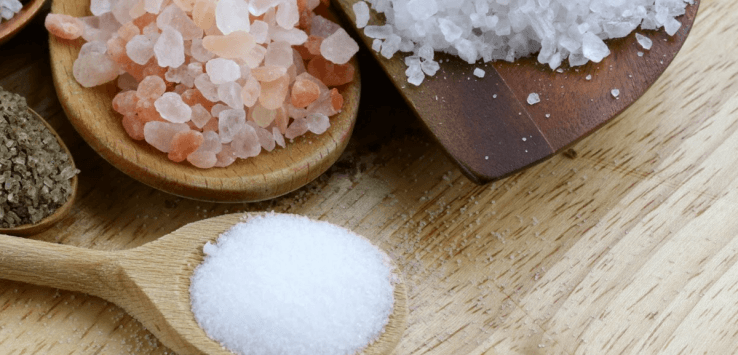- 2Shares
Perhaps one of the richest mantra for a healthy heart that has been preached & practiced since last 30 years is the reduction of your salt intake. Though it’s still controversial but white salt, has been considered as a cause for high blood pressure & heart-related concerns. This may also be just the opposite as we do need salt for the optimal health of our heart as well as for the systematic functioning of every organ. According to American Heart Association (A.H.A), a low-salt diet of around 1000 mg per day is still recommended for a favourable cardiovascular health.
Refined White Salt in our food
But let’s first learn about the common salt or table salt we consume on a daily basis.
- Refined white salt is highly processed, chemically treated and bleached to get it the bright white color.
- It is devoid of any natural minerals and may come with additional toxic agents. Due to its unnatural form, our bodies are not quite capable to utilize this salt in totality hence disturbing our body’s delicate balance.
- What is left at the end is just inorganic sodium and chlorine. Sodium present in the refined salt actually upsets the electrolyte balance of our body (affecting the amount of body’s water, muscle functioning, and other significant processes). Additionally, when the refined salt is consumed, the sodium levels rise whereas the calcium, potassium, and magnesium levels fall.
- Refined foods, as they lack minerals cause an acidic effect on our body which is associated with chronic diseases including arthritis, cancer, hormonal imbalances and a weak immune system.
- And not to forget, Iodine is added so you at least get one mineral. Experts say that this amount of Iodine may not always be sufficient to meet our body’s Iodine requirements
The Good Salt
The suggested way to restore this mineral balance is by discontinuing the consumption of refined & table salt or salty processed foods. Instead, increase the amounts of unrefined mineral salts.
Unrefined salts have many healthy minerals and are natural which is what our bodies are tuned to absorb. According to Ayurveda, Rock salt (or sendha namak) is the best salt and black salt (kala namak) is the next best.
To avoid any misunderstandings, let us tell you that what we are referring to here is the unrefined salt. Unrefined salt acts as an essential ingredient providing necessary minerals to our body. However, Ayurveda also advises low consumption of salt as too much of salt can make one withdrawn. It can cause wrinkles, damage the kidneys and bones or decrease libido.
Ayurveda states that salt has two major properties that make it a particularly important food:
1) Salt heats our body, and,
2) It calms our nervous system
Traditionally, during the winters, also called as the Vata Season in Ayurveda, salt is consumed in a greater quantity due to a rich food diet preserved by salt. These foods & spices naturally boost the winter salt consumption. Hence salt is offered as a reliable antidote to the extremes of winter dryness & coldness.
However, please keep in mind that we do not advise you to completely avoid the refined salt if you do not have Iodine in your diet from other sources. We only suggest you to use the refined salt in moderation and consume more mineral rich salts such as rock salt, black salt, and sea salts.






Leave a Reply